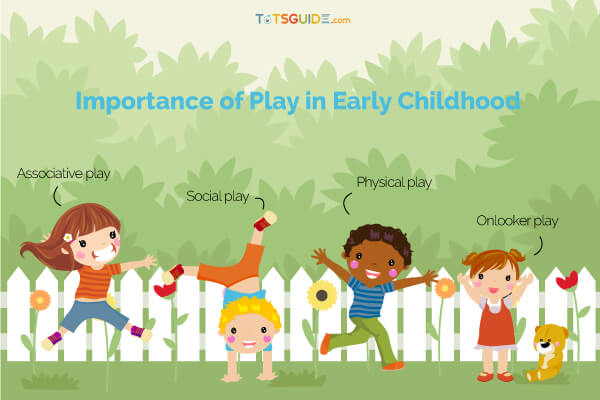
All Work and No Play Makes Jack a Dull Boy. . .
Those of you who have not paid much attention to above verse, better sit up and be serious now, since play is an important part of not just childhood, but throughout our lifetime according to research.
All that little activities of throwing a ball, building blocks, pretending to be the daddy, or cooking an imaginary cake is closely related to the development of cognitive, socio-emotional, and physical behaviors in a child. Play helps in enhancing language development, social competence, creativity, imagination, and thinking skills in children, all the while making them smile and be happy.
When we happily spend time playing with a child, little do we know that we are felicitating the development of imagination and intelligence, language, social skills, and perceptual-motor abilities in infants and young children.
First 6 months
During the first 6 months of their age, babies will enjoy unoccupied play which involves random movements with no clear purpose which we can understand. Keeping them engaged with rattles, textured toys, musical toys or unbreakable crib mirrors will appeal to the senses of sight, hearing, and touch in a baby. The contrasting colours on the crib mobile will help in stimulating infants developing a vision.
6-18 months
This is the time children explore the world around them. They can be engrossed in solitary play or an activity for quite some time, even unaware of what is happening around them. Trying to bite the teething rings, rattling the noisy rattles, pushing a toy car, or just twisting a towel can keep them engaged in their own world.
During the later months, children learn to interact and play with other children as well. They improve they observation skill and will imitate other children or the adult playing with them; thus improving their social skills, language skills, and cognitive development.
18 – 36 months
In the initial few months, toddlers will join other children and silently play along with them, not interact much. If they want something, they may not ask for it but just take it or make gestures at most. They also go through parallel play where two or more kids will play with their own toys, without disturbing the other.
Slowly their social skill will improve and they begin to show more interest in being friends with other children and playing with them. Providing constructive play activities to children at this stage provides active exploration that assists in building and strengthening brain pathways in a child. Play creates a brain that has increased flexibility and improved potential for learning later in life.
Playing with friends will improve their social skills which can be crucial for their career in their adulthood. They learn important skills like giving, taking, sharing, helping and co-operating.
When they go about enjoying a game or playing around children learn to imagine and solve problems while stimulating brain development while helping their brain create critical neural connections. Nearly 80% of brain development and speedy learning occurs in the first few years of a child's life. Active play activities will help them learn essential life lessons like cause and effect, problem-solving, trial and error, symbolic thinking and more.
Moreover, games that use physical movements will allow children to use their energy, enhancing their gross and fine motor skills. They also learn new things and socialize with other children. It keeps them active and healthy as well.
Totsguide has announced the new campaign #StopLabellingStartActing which aims in educating & building awareness among parents on taking action rather than labelling their children with tags.
The campaign will target parents with an effort to raise awareness of disorders and disabilities in children which can be managed through timely intervention. Parents, Doctors, Guardians & all our dear friends can support the cause by visiting Totsguide Pledge page. There, you will find the form to be filled with basic details that will help support the movement. It will not take you more than half a minute to sign up for the cause and help us hit 50,000 supporters.
